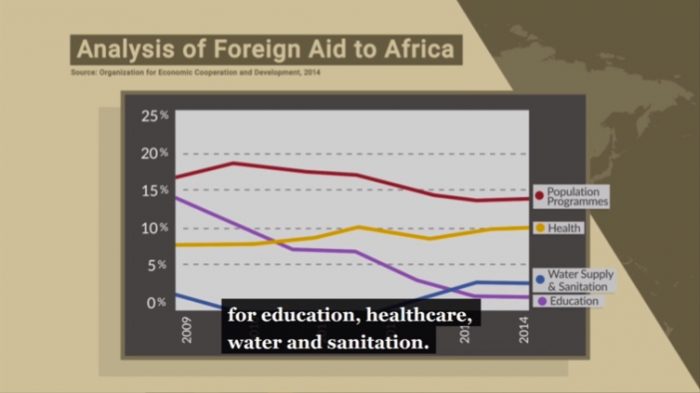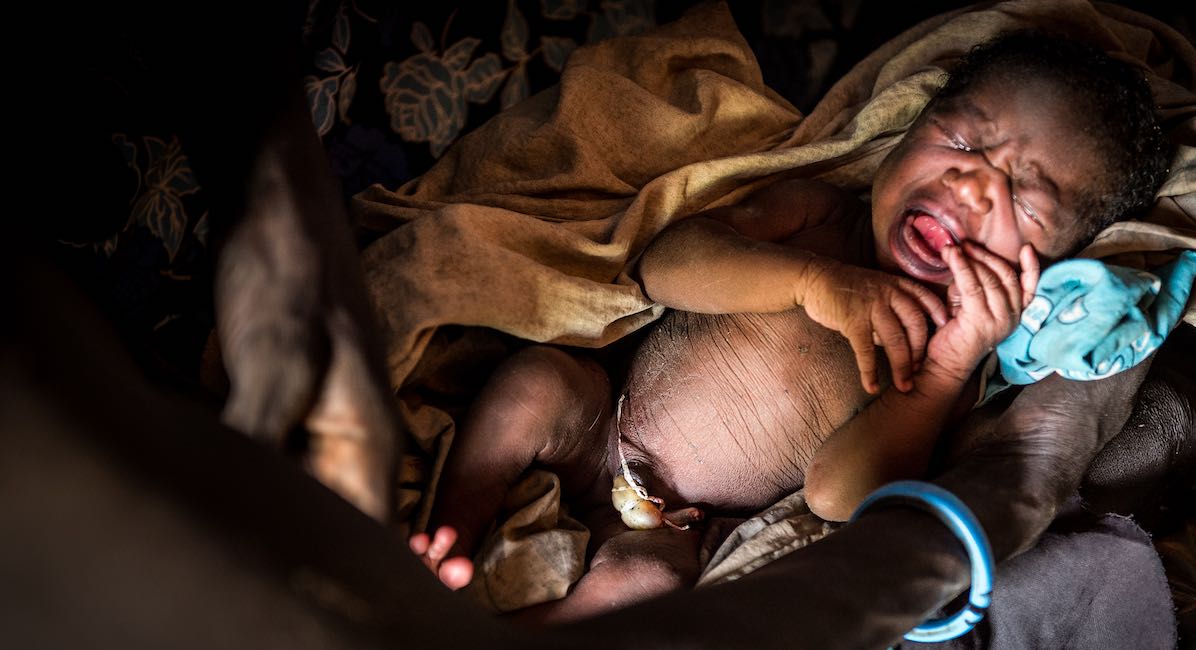The 50-minute documentary “Strings Attached,” produced by Culture of Life Africa founder and president Obianuju Ekeocha exposes the funding pipeline from Western countries to African nations, specifically for abortion and contraceptive “services,” and shares first-hand accounts of the harm countless women have experienced at the hands of global abortion giant Marie Stopes International.
In the fall 2019 issue of American Life League’s Celebrate Life magazine, Ekeocha said that the documentary’s title “Strings Attached” is meant to “capture[] the nature of the ‘gifts’ of some of Africa’s wealthiest donors.” In the documentary, Ekeocha explains how she came to become a vocal pro-life advocate after the Bill and Melinda Gates Foundation announced in 2012 that it would dramatically increase its “family planning investment” around the world, including across the African continent.
The documentary reveals how, following President Trump’s reversal of the Mexico City Policy — a move that abortion advocates call the ‘Global Gag Rule’ — European nations came together to pledge hundreds of millions of dollars to “make up for ” the funds diverted from abortion providers. The Organization for Economic Aid and Development reported in 2014 that “Africa received more funding for population programs than for education, healthcare, water and sanitation.”

Screenshot from Strings Attached documentary
Marie Stopes International Provides Sub-Standard Care
The documentary chronicles Marie Stopes International’s (MSI) troubling history of providing substandard medical care, as documented in European countries. In December 2016, the UK’s healthcare regulator Care Quality Commission issued what one UK physician called “a very critical, some might say, a damning report of Marie Stopes” due to 2,634 incidents of “serious breaches of practice” between 2015 and 2016. A year later in 2017, the doctor reported, “nearly 400 botched abortions were carried out in just two months.” He asked the next logical questions: “What about in developing countries where the health service is not as good, where there’s not a regulator, where people aren’t carrying out inspections? If [Marie Stopes International] is not following instructions here, what are they going to do in an unregulated situation [like in African countries]?”
“They Ruined My Life”
“Strings Attached” exposes the harm African women have experienced from illegal abortions and dangerous contraceptives provided by Marie Stopes International. Multiple women went on record describing horrific experiences of illegal abortions thanks to abortion pills dispensed and surgical abortions performed by staff of Marie Stopes International (MSI), which has clinics in 37 countries globally.
Jacqueline Gandhi was an MSI employee in Kenya who staffed a hotline for women trying to obtain abortions, even though abortion is illegal in Kenya. She personally had four abortions during her eight years working for MSI. She said that in its reporting, MSI reports abortions as “post-abortion care.” She also said, “Clinics got bonuses if they surpassed their targets [for number of abortions].” She personally knew of multiple “cases where we heard that ladies died because of abortions done by Marie Stopes.”
Another woman Ekeocha interviewed, Akeech Aimba, experienced an unplanned teenage pregnancy, and a trusted friend referred her to MSI for a second-trimester surgical abortion. She said, “I was not put under any anesthesia. The doctor went on and on, and I remember screaming and crying and trying to crawl out of that bed…. And after the procedure, he showed me the pieces of my baby.”
READ: Abortion ‘logic’: Kill Kenyan children in the womb to prevent killing outside the womb
A third Kenyan woman shared her medication abortion experience anonymously, reporting tremendous pain during the procedure, and saying that afterwards she suffered from “post abortion stress syndrome. I’m still trying to recover from it. They [MSI] ruined my life.”
A fourth woman reported “there was no counseling or anything. They just did it.”
Ekeocha also secretly recorded a call placed to the Eastleigh, Kenya, MSI clinic by a woman purportedly seeking an abortion. The MSI employee she spoke to over the phone offered her her choice of an in-clinic abortion or “we deliver the pills at your place.” A second call placed to a different Kenyan MSI clinic several months later yielded the same offer for an illegal abortion.
Dr Seyoum Antonio, an Ethiopian surgeon, told the story of a 16-year-old girl “who has gone to Marie Stopes International to get abortion, where she sustained uterine perforation, and then she had a serious infection. She was brought to the hospital and a hysterectomy was done, at the age of 16.”
“Even if You Refuse, This is the Best”
Ekeocha told American Life League that “nothing prepared me for the deep wounds inflicted on African people and communities by Western donors. Some of the women I interviewed had such painful stories about their experiences. I believe that they’re victims of human rights abuses by Western pharmaceutical companies in collaboration with organizations like Marie Stopes International.”
Anna-Theresa Amo was one of 12 women from her village who visited a MSI facility and was pressured to have IUDs implanted. Through a translator, Anna-Theresa said that when the women objected, requesting some other form of contraception, staff told them, “even if you refuse, this is the best” and then locked the women inside the room and inserted the IUDs. The women experienced terrible abdominal pain and infections — side effects they were never warned about.
Other women Ekeocha interviewed received the Norplant contraceptive implant years after it had been taken off the market in the United States due to disturbing side effects. One woman she interviewed described “abdominal pain, paralysis in hands and legs, vaginal discharge, and severe headache on one side” caused by the implant. Another woman said that when she requested removal of the Norplant, she was told that it would cost her the equivalent of a week’s worth of food for her family to do so.
Dr. Anthony, a physician in a small, rural Ugandan clinic reported seeing “as many as one hundred women every week” due to serious side effects from Norplant, including “heavy vaginal bleeding, some of them come complaining of headache, severe headache. Some of them have a lot of pain. Some patients come here and they are saying the husbands beat them up because there is a loss of libido. So the man thinks the woman’s going out hitching around.”
He reported one case where a woman had had an IUD in place for 12 years, a not uncommon experience in rural parts of Africa where followup to contraceptive insertion or implantation is nonexistent. He said the woman was “rotting up there,” and that “some patients do die, by the way.” While American women received financial settlements from the makers of Norplant, Ekeocha did not know of a single African woman who had been compensated for damage caused by a contraceptive from a Western country.
“These organizations say that they’re empowering women, but they are abusing the Africans, especially the ones in the most rural areas who don’t have access to a doctor,” Ekeocha said. “The African people are treated as sub-humans.”
What Africans Really Want
Speaking of her travels to 10 African countries and 20 African cities, Ekeocha said “none of the women are telling me how much they want contraception. None of them are telling me how much they want abortion. Every time I’m speaking with, especially, young African girls, they tell me that some of them want to be doctors. They want to go to med school, they want to go to law school, they want to go to engineering school. These are the dreams that I hear the African girls speaking about.”
“Strings Attached” is available for rental or purchase on Vimeo and Amazon. Ekeocha’s book, “Target Africa: Ideological Neo-colonialism of the Twenty-First Century,” is available on Amazon.
“Like” Live Action News on Facebook for more pro-life news and commentary!







